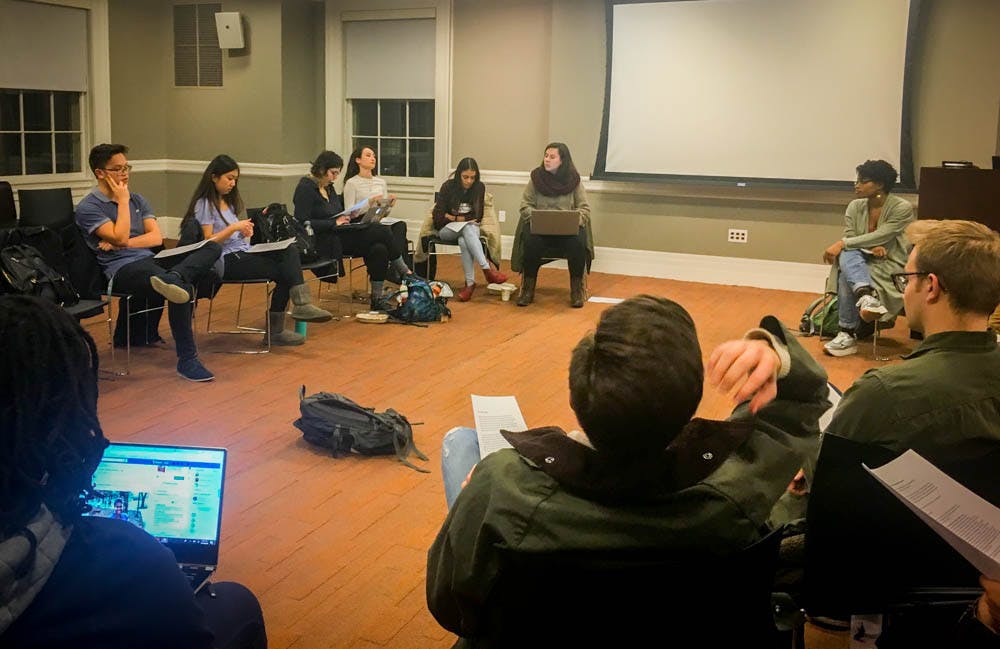The Undergraduate Council of Students discussed changes to the Campus Consent Bill with members from several Category III student groups at its general body meeting Wednesday evening.
Representatives from the Sexual Assault Peer Education program, Shakespeare on the Green, the African Students Association, the Class Coordinating Board and the Brown Noser attended the meeting. Establishing partnerships between UCS and such groups will be important for the Campus Consent Bill’s success, said UCS President Chelse-Amoy Steele ’18.
“It’s really important to me personally that we are creating something together that will actually be able to have a long-standing impact,” she said.
The bill, which UCS passed in a unanimous vote last spring , mandates that a liaison from every Category III student group receive training from SAPE by the end of spring 2018 in order for the group to maintain its funding and classification. Category III student groups have access to funding from the Undergraduate Finance Board above the baseline $200 amount provided by the Student Activities Office, according to UCS’ website.
A proposed amendment to the bill eliminates the liaison position. Instead, the new bill would require that groups alter their constitutions to outline how they will work to prevent and respond to incidents of interpersonal harm within their groups. It would also mandate that a student leader from each Category III student group attend a training. Groups must prove that they have amended their constitutions and completed training before their recategorization or re-registration process, Steele said.
Changes to groups’ constitutions should establish “an action plan so that not only are you being proactive on the front end and thinking about how interpersonal harm can manifest within your student group, but also being able to actually address those issues when they come up,” Steele added, addressing the representatives from the student groups.
There will be six trainings available for student leaders to attend. “These trainings are going to be hosted by UCS, but the actual teaching and education that would take place during the workshop would be done by the people who are already doing interpersonal harm prevention work on campus,” Steele said. This could include members from SAPE or the Social Justice Peer Education Program.
The training structure under the previous version of the bill required that a designated liaison from each student group attend a three-hour training with SAPE and then host a connected training with their group, The Herald previously reported.
However, SAPE was not equipped to provide all types of training desired by student groups, said Ryan Anderson ’18, SAPE’s UCS Coordinator.
“The SAPE program is designed to talk about sexual-based violence or gender-based violence, and parts of our curriculum went into other parts of power (and) privilege, … but there are certain groups on campus … that want to learn about how race is a system of oppression,” Anderson said. “With this new model, we’ll be working with other student groups as well.”
Members of the general body also discussed the limitations of UCS’ influence in mandating broad training and conversations within student groups concerning interpersonal harm.
“That’s something where I would go back and build onto the language of the bill to say that this is something that we really encourage, ... (but) that won’t be something that we can be accountable for, which is a drawback,” Steele said.
UCS also distributed copies of a template for a clause to remove a member from a student group. New student groups or groups applying for recategorization from Category II to Category III will be required to include the distributed clause or a version of it in their constitutions.
“This is just a template, and we thought that it’d be helpful for groups to have that, and we encourage groups to change it to fit their needs,” said William Zhou ’20, chair of the Student Activities Committee.
UCS will hold its next general body meeting Feb. 21.





